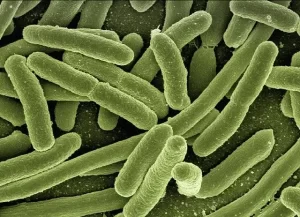Some food is important against COVID-19
Some food helpful against COVID-19
Some food is important against COVID-19. Reference News Network reported on December 8 British media said that at a virtual meeting of the British Nutrition Foundation last week, scientists discussed the key role of nutrients in the fight against the COVID-19 epidemic. The latest research on patients with COVID-19 pneumonia and a large number of existing studies related to other viral infections show that key nutrients such as selenium, zinc, vitamin D and probiotics can strengthen the immune system, limit the severity of coronavirus symptoms, and even reduce intensive care admissions Number and death rate.

According to the British “Daily Telegraph” website reported on December 3, although this nutritional data needs further research, the results so far have aroused people’s interest. Research in Germany shows that patients who survived the fight against the COVID-19 pneumonia have higher levels of selenium (a nutrient found in turkeys, sardines, eggs, Brazil nuts, liver and kidneys) than those who died of the COVID-19 virus.
A Spanish study found that healthy zinc (a mineral found in meat, poultry, cheese, shellfish, and seeds) levels are associated with higher survival rates. Another paper found that 82.2% of COVID-19 hospitalized patients lack vitamin D, and we get vitamin D through exposure to sunlight. An Italian study found that probiotics reduced the severity of symptoms of COVID-19 pneumonia and reduced mortality.
Mike Gleason, Professor Emeritus of Sports Biochemistry at Loughborough University in the United Kingdom, explained: “Nutrition is very important, not because’resistance’ protects you from being infected by COVID-19, but because it improves your resistance to COVID-19. Tolerance’. Tolerance means that the burden of infection is reduced after infection, so that symptoms are less severe and can recover faster. This is the role that nutrition may play. The compounds we are discussing may optimize the immune response, or Have beneficial anti-inflammatory or antioxidant effects.”
So, how do these important nutrients help your body return to normal? Studies have shown that selenium helps to intelligently perfect your immune response. Gleason said: “If you have the right amount of selenium, your infection will not be so serious. There is evidence that if your lymphocytes (white blood cells) proliferate, it will help activate the virus-specific Cell line.”
And zinc helps prevent the spread of the virus. Gleason explained: “The virus has a protective coat around its genetic material. The first thing the virus does after entering your cell is to take off the coat, release the genetic material, and take over your own enzyme mechanism. This helps. To produce other viruses in that cell. Zinc also helps to inhibit the virus from taking off its coat, and it helps to inhibit the enzymes that regenerate genetic material in the cell, thereby helping to prevent the spread of the virus.”
reported that probiotics can also play an important role because your intestines are a key part of your immune system. Gleason explained: “About 70% of immune cells are located in and around the intestine. However, your intestine is also a safe haven for COVID-19 pneumonia.”
The report pointed out that although the relationship between vitamin D and COVID-19 pneumonia has not been confirmed, this vitamin plays a key role in general immunity. Therefore, vitamin D supplementation may be needed in winter, but Gleason believes that we can get most other immune-optimizing nutrients from our daily diet. In addition to the foods listed above, nuts, cod and whole wheat also contain selenium (the recommended daily food intake for men is 75μg and 60μg for women); beef, dairy products and spinach also provide zinc (the recommended daily food intake for men is 9.5 mg, 7 mg for women); a mixed intake of healthy fruits and vegetables will keep your intestinal bacteria healthy and fill your intestines with probiotics.
Disclaimer of medicaltrend.org



